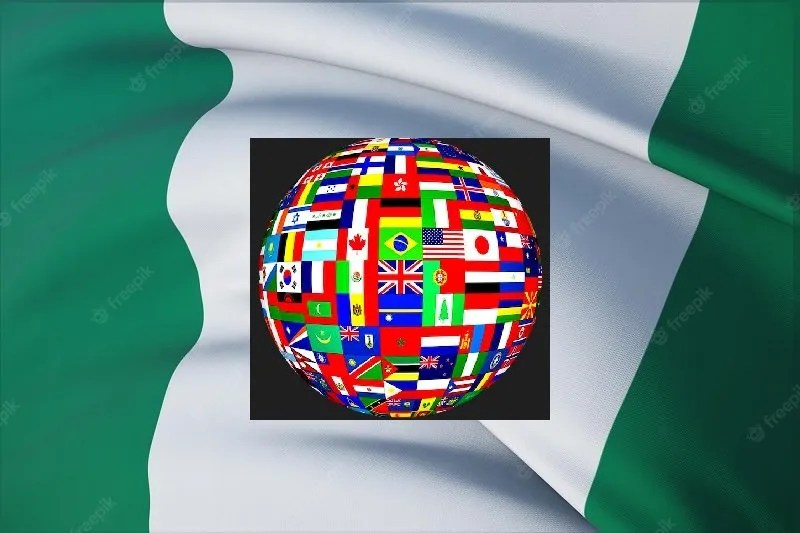
Governments create foreign policies to deal with international affairs adequately. These policies have varying objectives depending on the country’s interests. Broadly, its purpose is to govern how the government interacts with the rest of the world, to ensure that domestic affairs are adequately protected from outsiders and that foreign goals are met.
What is Foreign Policy?
A foreign policy is a set of predetermined strategies designed and implemented to manage a country’s relationships with other countries. They are well-structured guidelines that govern international political transactions.
Foreign policy is shaped to promote a country’s main plan, which could be an economic, social, or political agenda, gain supporters, and increase international awareness and engagement. A foreign policy covers many topics, including immigration policies, international trade, war and military conflicts, international organizations, and international law, among others.
For instance, governments have traditionally formed military alliances with foreign states to deter and demonstrate excellent resistance to attack by establishing a defensive foreign policy. Defensive foreign policy measures like foreign aid and financial sanctions are thought to reduce terrorist activity, whereas military intervention and military support are thought to increase terrorist activity.
Foreign policy is significant for a country’s role in the global economy and international trade. Economic foreign policy issues may include the establishment of trade treaties, the distribution of foreign aid, and import and export management. The World Trade Organization facilitates most countries’ economic foreign policies.
Similarly, many states have developed humanitarian programs based on the concept of the duty to protect. Liberal internationalists believe it is the responsibility of stronger and wealthier countries to assist and support weaker countries.
Each country’s highest executive authority usually appoints someone to oversee foreign policy issues. The Minister of Foreign Affairs in Nigeria is in charge of managing the country’s foreign policy.
Factors Affecting Nigeria’s Foreign Policy With Relations
As an actor interacting with other state actors in the international environment, the Nigerian state deliberately formulates a set of goals and objectives that she seeks to achieve in her relations with other countries, based on its various domestic and international needs and gratifications. Nigeria’s foreign policy, like all others, aims to achieve the aspired goals and articulated interests of the Nigerian state for the benefit of Nigeria and Nigerians. However, many knowledgeable Nigerians believe this expectation has yet to be fully realized. Nigeria’s foreign policy, among other things, has failed to transform Nigeria’s status and Nigerians’ lives from where they are to where they should be. Despite its many strengths, there is a sense that Nigeria’s diplomacy is punching below its weight. The remainder of this article highlights and weighs the internal and external factors affecting Nigeria’s foreign policy in various capacities.
1. Lack of Professionalism
Professional deficiencies pose a challenge to Nigeria’s foreign policy practice. These challenges include staffing, training, and funding, which negatively impact Nigeria’s overall foreign policy output. This is especially true when one considers that diplomacy is a noble profession that necessitates a solid intellectual foundation and understanding of international affairs.
Nigerian diplomats and foreign policy practitioners do not appear to have received the necessary training and orientation to meet the diplomatic realities and challenges of the current global age. For instance, specialist disciplinary and language skills are critical in this era of complex trade negotiations and rapid global movement of people. However, only 25% of foreign ministry personnel speak a second international language in addition to English, resulting in a focus on a generalist-based foreign service instead of one based heavily on a specialty.
The federal character principle in appointing and placing individuals in important positions in Nigeria’s Foreign Service has demonstrably undermined merit, talent, and efficiency, resulting in a high level of unqualified professionals working in Nigeria’s foreign affairs departments. The constitutional provision requiring the reflection of federal character and regional balance in public officer recruitment and appointment has not served the foreign ministry well. This is due to abuse of the recruitment process rather than a lack of qualified candidates across the federation’s various states. The current recruitment pattern, which brings a significant number of ill-qualified personnel into the professional cadre of the Foreign Service, merely validates the federal character provisions for Foreign Service recruitment. As a result, officers with demonstrated capacity for high-level performance, innovative thinking, creative solutions, and proactive approaches to policy execution are frequently overlooked for appointments and promotions. On the other hand, mediocrity and incompetence are unquestionably rewarded, while misconduct and unprofessional behavior thrive in an environment of impunity.
The current practice of appointing far more politicians than careerists to ambassadorial posts abroad has had a far more significant impact on the morale of professional Foreign Service officers. Without a doubt, the introduction of politics into the Foreign Ministry’s recruitment process has harmed the quality and professionalism of the foreign affairs service.
2. Gap in Legislative-Executive Relations
Another factor influencing Nigeria’s foreign policy is the strained relationship between the executive and legislative branches of government. Aside from the difficulty of getting the budget of the Ministry of Foreign Affairs as approved by the National Assembly, ambassadorial nominees must also be confirmed by the Assembly. The foreign affairs department and officials frequently face problems with the legislature while conducting routine foreign affairs. This government organ often intervenes directly in the implementation of foreign policy. In many cases, the government’s legislative organ reacts to or deals with aspects of Nigeria’s foreign relations without the benefit of institutional knowledge and information about best practices and processes. As a result of this incoherent policy, this organ of state works at cross purposes, making Nigeria’s foreign policy goals and objectives unclear and ambiguous.
3. Principle of Reciprocity
The principle of reciprocity in international relations and foreign policy states that favors, benefits, or penalties bestowed by one state on citizens or legal entities of another are not usually returned to Nigeria. The implication is that Nigeria should have reaped enormous benefits from its numerous and diverse humanitarian policies toward other African countries. But, contrary to expectations, the opposite has occurred. Nigeria, for example, contributed twelve thousand of the thirteen thousand Economic Community of West African States Monitoring Group (ECOMOG) troops deployed to Sierra Leone during the war, and its treasury released huge amounts of funds per year for the mission. Likewise, Nigeria provided at least 80% of the troops and 90% of the funding for ECOMOG to keep the peace in embattled Liberia. However, contrary to international political expectations, Liberia and Sierra Leone voted against Nigeria’s interest in and candidacy for non-permanent membership in the United Nations Security Council. Following the Liberian and Sierra Leonean wars, no Nigerian construction or human resource firm was awarded a contract for rebuilding and reconstruction in both countries to compensate for and recoup the enormous sums of money spent on peacekeeping in both countries. Nigeria has failed to capitalize on these military deployments and expenditures in diplomatic terms. Beyond rhetorical gratitude, there was no clear indication that Nigeria’s goodwill gestures were appreciated in the region.
Similarly, Nigeria significantly contributed to Angola’s political independence due to its Afrocentric policy stance. Nigeria recognized the Movement for the Liberation of Angola (MPLA) and provided financial support, military hardware, and fighter planes. Despite everything Nigeria did for Angola, Nigeria’s name was not on the list of countries Angola thanked for their assistance in Angola’s independence struggle during its first appearance at the OAU Summit. In what would have been reciprocity of favour, Nigeria unsuccessfully attempted to gain Angola’s consent to allow Nigerian trawlers to fish off the Angolan coast. Rather than Nigeria, Russia was granted exclusive fishing rights along the same coast. What is unclear is whether, despite all of this, Nigeria should feel obligated to such countries that have shown open hostility despite benevolence shown.
4. Lack of Articulation of National Interest
Foreign policy is fundamentally about defending and advancing a country’s national interests, which cannot be conducted in a vacuum. Every nation’s foreign policy serves or should serve its national interest. Worryingly, this crucial ‘National Interest’ has eluded a comprehensive, clear, and precise definition in Nigeria’s constitutions and foreign policy practices. It is challenging to define Nigeria’s national interest, and it will be even more difficult to redefine it to provide, among other things, the mechanism and strategy that will facilitate the pursuit of foreign policy to achieve its national objectives, especially given the deepening of globalization and the emergence of new powerful actors. Nigeria faces this fundamental challenge in the twenty-first century, according to every metric and consideration. Noticeably, trends in Nigeria’s foreign policy indicating its national interest have not been very stable over time. Nigeria’s national interests are inextricably linked to the ruling class. As a result, national interest is another name for the ruling class’s interest in the country at a given time and period.
5. Challenge of Afrocentrism
Some numerous problems and challenges stem from Nigeria’s Afrocentric foreign policy. For obvious reasons, Nigeria has made Africa the focal point of her foreign policy since independence. Nigeria has supported Africa’s course in many ways, including participation in various peacekeeping operations. Nigeria’s participation in peacekeeping operations in many troubled African zones has depleted both material and human resources. It has also resulted in conflicting perceptions among various actors in the conflicts, which are being carried on in other forums and international platforms. More importantly, Nigerian citizens must see the tangible results and gains of the country’s Afrocentric diplomacy in the material improvement of their lives; otherwise, they will see no justification for the money spent on these pursuits.
Furthermore, Nigeria’s foreign policy’s long-standing embrace of Afrocentrism is long overdue to give way to citizen-focused foreign policies. Nigeria has spent many years pursuing, without success, the good and well-being of other African nations at the expense of its citizens’ well-being. The perception among Nigerians, particularly those living outside the country’s borders, is that the Nigerian state is unconcerned about the plight of its citizens abroad. Cases involving Nigerians abroad, which the Nigerian state’s intervention through the missions would have eased, were perceived to have gone unattended. Nigerians facing difficulties abroad are almost always viewed as sheep without shepherds, even though the constitution clearly states that sovereignty belongs to the people from whom the government derives its power.
There has been an expectation, particularly since the post-cold war era, that the Africa-centeredness of Nigeria’s foreign policy should change and shift in light of Nigeria’s domestic situation and the realities of the post-cold war international system. It is absurd to rely on foreign policy tools and conceptual frameworks developed in the 1960s to address the modern complexities of a global system increasingly driven by globalization forces. In this age of globalization, Nigeria has no choice but to adjust and adapt its foreign policy. Climate change, terrorism, and transnational crime, for example, are unavoidable challenges that must be addressed in foreign policy formulation and governance at the domestic level. As a result, Nigeria’s foreign policy must closely monitor these issues and consider their broader implications.
6. Economy
The weak state and appendage nature of Nigeria’s economy has weakened Nigeria’s foreign policy’s ability to protect and project national interests effectively into the outside world. It is axiomatic that a country’s foreign rating and influence are fundamentally a reflection of the health and size of its economy. While Nigeria has a large economy, it is also experiencing a severe economic crisis, making it difficult to realize its full potential. Nigeria’s economy is mainly neocolonial, relying on primary commodity exports and finished commodity imports. More so, Nigeria, in particular, is heavily indebted. This, without a doubt, prevents her from playing the critical roles she desires in the international system.
The issue of globalization is linked to the problem of the economy in Nigeria’s foreign policy challenges. Paradoxically, while globalization tends to remove all barriers to forming a single global market, increase trade volume, and broaden consumption parameters, nation-states’ responses have largely been protectionist. There is currently no country in the world that is entirely independent of others. This interdependence, however, poses a threat to developing countries like Nigeria because it is not equally beneficial to all states because developed countries have a better trade balance and more economic power than developing countries like Nigeria. Because of this, Nigeria and other developing countries are vulnerable to manipulation by developed nations.
In conclusion, the persistence of the factors affecting Nigeria’s foreign policy results from neglect, poor, and irresponsible leadership, which has hampered Nigeria’s foreign policy output and left much to be desired in terms of foreign policy performance. On the plus side, Nigeria’s population and abundant mineral resources, if correctly leveraged, have the potential to catalyze the country’s development and a dynamic foreign policy.




